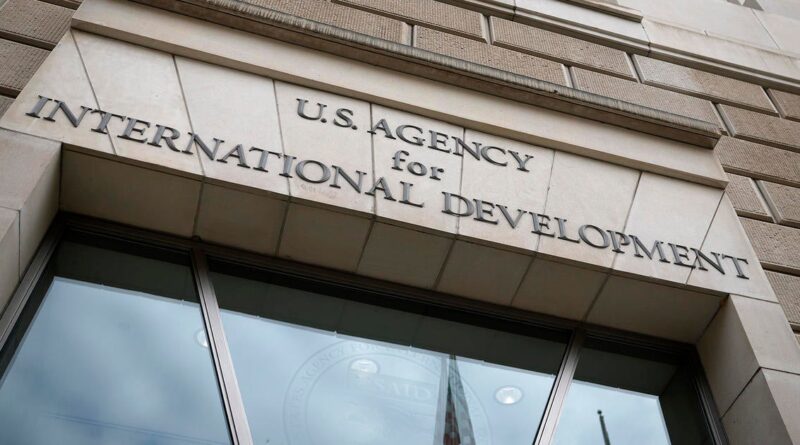Almost $500 million in food is at risk of spoilage after USAID pause, report says
Almost $500 million in food aid is at risk of spoilage as it sits in ports, ships and warehouses after funding for the U.S. Agency for International Development, or USAID, was paused by the Trump administration, according to a Feb. 10 report from a government watchdog.
The report from USAID’s inspector general highlighted the risks of “safeguarding and distribution” of $8.2 billion in unspent humanitarian aid after the Trump administration ordered almost all staff to be placed on leave and ordered a review of U.S. foreign assistance programs.
USAID, which provides humanitarian aid to more than 100 countries, buys food directly from U.S. farmers and manufacturers, which have typically provided about 40% of international food assistance, according to a 2021 report from the Congressional Research Service. With USAID funding paused, there is concern among U.S. farmers about the market for some of their products, including Kansas sorghum producers, according to the Topeka Capital-Journal.
While the future of USAID’s funding and its purchases from U.S. farmers remains unclear, there is currently $489 million worth of food sitting “at ports, in transit, and in warehouses at risk of spoilage, unanticipated storage needs, and diversion,” the Feb. 10 USAID inspector general report said.
An additional 500,000 additional metric tons of food is currently on ships or ready to be shipped abroad, the report added. USAID typically buys commodities such as wheat, soybeans, sorghum and split peas from U.S. farmers.
“When the food doesn’t get to where it needs to go, it winds up in a landfill, and that has devastating effects,” Ashley Stanley, the CEO of Spoonfuls, which redirects excess food from grocers and other companies to aid organizations in Massachusetts, told CBS Boston.
The U.S. State Department, which has been tasked with overseeing USAID, didn’t immediately respond to a request for comment.
The Trump administration has targeted USAID as President Trump and billionaire Elon Musk, the head of the Department of Government Efficiency, or DOGE, seek to cut the size of the federal government. Musk has said the agency should be shut down, calling it “beyond repair.”
The future of the agency, established in 1961 to combat poverty, strengthen democracy and protect human rights and global health, is now uncertain. On Friday, a federal judge prevented the Trump administration from placing 2,200 USAID employees on administrative leave,
The Norwegian Refugee Council, one of the largest humanitarian groups, called the U.S. cutoff the most devastating of any in its 79-year history. It said Monday that it will have to suspend programs serving hundreds of thousands of people in 20 countries.
“The impact of this will be felt severely by the most vulnerable, from deeply neglected Burkina Faso, where we are the only organization supplying clean water to the 300,000 trapped in the blockaded city of Djibo, to war-torn Sudan, where we support nearly 500 bakeries in Darfur providing daily subsidized bread to hundreds of thousands of hunger-stricken people,” the group said in a statement.
contributed to this report.

